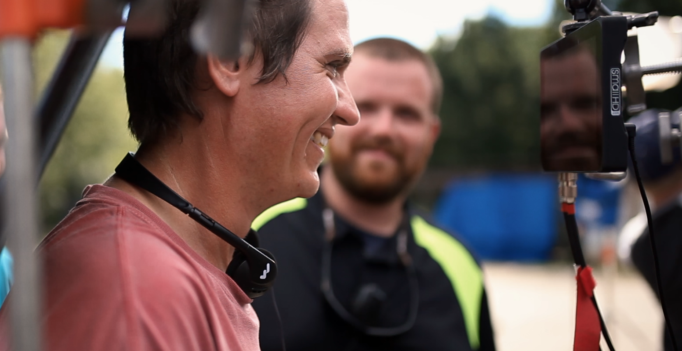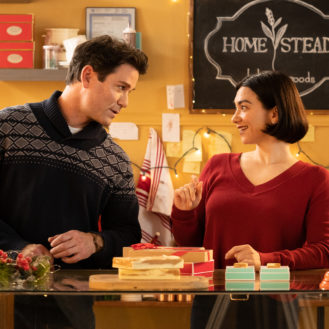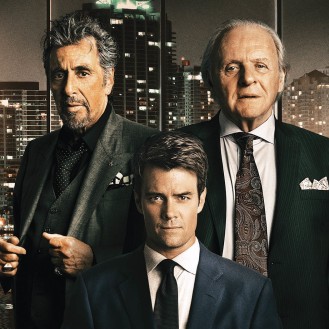By: Jeff Ching
Clean Slate is a documentary that can be described as The Fabelmans meets Dopesick. Instead of trying to cover the opioid crisis and the countless lives that have been ruined because of it, Clean Slate takes a more grounded approach; simply focusing on two best friends (Cassidy and Joshua) in rehab, whose lives have been ruined by their addiction to painkillers. However, Cassidy and Joshua share one passion – their love of movies. They’ve written a short drama called On The Fence, about their opioid addiction and how it’s affected their families. What better form of catharsis than to go out and make this movie!
If this was a “based on a true story” inspirational Hollywood movie, then I’m sure we could predict how this story would end. Their passion for movies and creative energy would defeat their addiction in the end as they ride off into the sunset. However, Clean Slate is a harsh reminder that real life is not like a Hollywood movie. Just when things seem to be going smoothly, one little incident can throw them into a relapse and back to square one. In one very honest moment, Cassidy’s mom shows up to the film shoot, proudly supporting her son’s directorial debut. When the documentary filmmakers ask her whether she thinks filmmaking can keep him from relapsing, she point blanks says “no, nothing will stop him from relapsing again”.
Clean Slate takes a more fly-on-the-wall approach than your usual “talking heads” documentary. We follow the subjects around, living their lives, doing anything they can to take their minds off their next fix. We can see that they’re smart, talented people and we’re rooting for their recovery. We learn their backstories. Joshua was quite creative with his crimes: calling in prescriptions for himself, impersonating a doctor. It was a plan that worked for a while, but eventually the police got him and offered him either rehab or jail. Then, there’s Cassidy who tells a story of such a tragic, devastating, trauma that lead him right back into painkillers. You almost can’t blame him for his countless relapses. I liked the hand drawn animations that accompanied these stories and I almost wish there was a bit more of it.
For a movie about opioid addiction, it’s one of the less depressing stories out there, to which I won’t complain. I did enough crying sitting through 8 hours of Dopesick. This is a love letter to filmmaking, and we get to witness our protagonists make a movie from pre-production (the script read, auditions, location scouting), to the 2 days of film production, to the movie’s debut at the Atlanta Film Festival including the classic, familiar footage of the nervous director pacing back and forth before his movie plays to a huge audience. While The Fabelmans makes filmmaking look like a lot of fun, Clean Slate once again is a documentary, and dispels that misconception. Pre-production sucks, it’s a lot of work, it’s stressful as hell and the whole, “let’s use filmmaking as a creative outlet to stay off drugs” comes off like a bad idea, because what is one of the biggest contributing factors for wanting to pop pills? Stress. Joshua laughs as he says, “This is why no one makes movies in rehab. It’s impossible.” No kidding.
Clean Slate builds up to the climax, which is the film shoot – 2 days to film everything, because that’s all they had in the budget. Something that not enough movies show about the reality of film production…it’s not all fun and games and some shoots are plagued with Murphy’s Law. Once one thing goes wrong, it just sets off a chain reaction that would be any director’s worst nightmare. Maybe I’m a bit of a dick, but as I watched mishap after mishap, I laughed and laughed and laughed. I don’t mean to laugh at their pain, but I’ve been on a few shoots just like that, and it was just so relatable. In film school, we called it Vilchur’s law, because film shoots were always cursed when a certain P. Vilchur was the director. I went off on a tangent, so back on topic of On the Fence. It’s not all bad; when the actors deliver great performances, the filmmakers nail their shots and we see the giant smiles on Cassidy and Josh’s faces, I felt their joy.
All the difficulties that Cassidy and Josh faced shooting On the Fence almost comes off as a metaphor for their lives. They have really struggled to keep their heads above water so, of course, the production of their movie about their battle with addiction was going to be anything but smooth. However, despite all the obstacles, they still pulled through and finished their movie; hopefully that too will be a metaphor.
Documentaries like this make me appreciate being a critic because what are the odds I would have discovered this movie on my own? The runtime flies by pretty quickly and it’s more entertaining than most documentaries out there…and refreshingly less depressing. There are some very funny moments (the lengths that Cassidy will go through for his movie’s key metaphor…I won’t give this away, but “hahaha” and “ew”), and there are sad, devastating moments. Clean Slate is hopeful and inspirational, but also grounded in reality. We know that as the credits roll, there will be no riding off into the sunset for Cassidy and Josh; the rest of their lives could be this never-ending battle. However, the optimist in me feels like they’re much better off by the end of the documentary than they were at the beginning. I’m hopeful for an uphill trajectory for these two.
**** (out of 5)
Additional Note: The end credits provide a link to see their short film – On the Fence. That link also provides updates about their lives from 2018 until today. I’m going to check that link periodically.
**********
Read more of Jeff Ching’s thoughts on film at The Ching of Comedy’s blog.





Be the first to comment